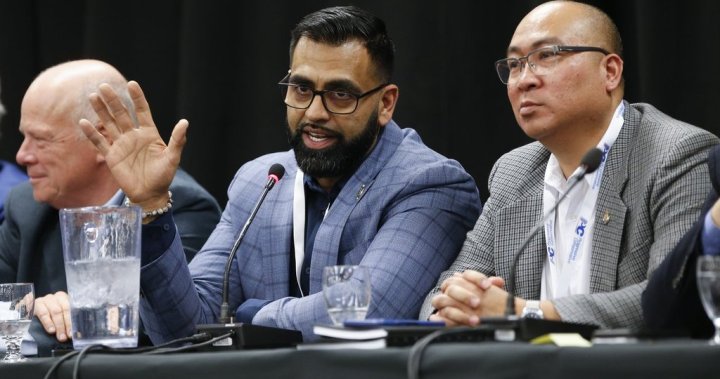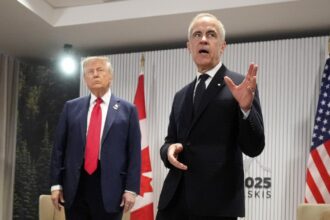In a heated legislative showdown unfolding in Manitoba’s provincial legislature, Progressive Conservative MLAs have raised significant concerns over a proposed NDP bill aimed at protecting gender expression and identity. The opposition contends that while well-intentioned, Bill 240 could potentially undermine fundamental free speech protections and academic freedoms that Canadians hold dear.
The bill, introduced by NDP backbencher Uzoma Asagwara, seeks to amend the province’s Human Rights Code to prohibit “statements that could be deemed to promote hatred” against individuals based on gender identity or expression. Though seemingly straightforward in its protective aims, the legislation has sparked intense debate over where protection ends and censorship begins.
“This bill, unfortunately, represents a dangerous overreach that could criminalize legitimate discussion and debate,” said Kathleen Cook, the Progressive Conservative critic for gender equality. “Protecting vulnerable Manitobans is essential, but not at the expense of fundamental Canadian freedoms.”
The controversy centers on specific language within the bill that Conservative members argue is overly vague and potentially far-reaching. Under current Manitoba law, hate speech provisions already exist, but critics suggest Bill 240’s broader wording could extend restrictions to educational settings, religious discourse, and even private conversations.
NDP Justice Minister Matt Wiebe has defended the legislation, insisting it simply brings Manitoba’s human rights protections in line with similar provisions in other provinces. “This is about ensuring that all Manitobans can live with dignity, free from discrimination,” Wiebe stated during question period.
According to legal experts at the University of Manitoba, the bill’s interpretation could prove challenging for courts. Professor Eleanor Richardson, a constitutional law specialist, notes: “The tension between protecting vulnerable groups and preserving free expression has historically been difficult to balance in Canadian jurisprudence. The wording of this particular legislation leaves considerable room for interpretation.”
The proposed amendments would place gender identity and expression alongside other protected characteristics in Manitoba’s Human Rights Code, including race, religion, and sexual orientation. However, unlike existing protections, the new provisions contain additional language about “promoting hatred” that has become the flashpoint for debate.
Political analysts suggest the controversy reflects broader cultural divisions emerging across Canada. The Manitoba legislation follows similar debates in other provinces, where conservative voices have increasingly voiced concerns about potential restrictions on religious freedom and academic inquiry.
Public reaction has been equally divided. LGBTQ+ advocacy groups have praised the bill as a necessary step toward protecting transgender and non-binary Manitobans from rising incidents of discrimination. Conversely, civil liberties organizations have expressed caution about potential unintended consequences for expression rights.
“I’ve spent my career defending vulnerable Manitobans,” said Michelle Larocque, a transgender rights advocate in Winnipeg. “But this protection must come through education and changing hearts and minds, not through restrictions that could ultimately backfire by silencing important conversations.”
The bill faces several more stages of debate before potentially becoming law, with committee hearings expected to draw significant public input. The NDP government holds a majority in the legislature, theoretically ensuring passage, but growing public pressure could influence amendments to address free speech concerns.
As this legislative battle unfolds in Manitoba, it raises profound questions about the delicate balance between protecting vulnerable populations and preserving fundamental democratic freedoms. In an increasingly polarized society, can we craft legislation that effectively shields marginalized groups without compromising the open dialogue necessary for a functioning democracy?


















